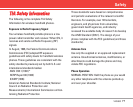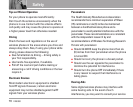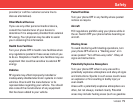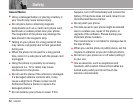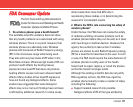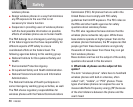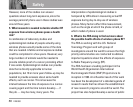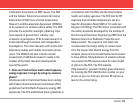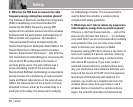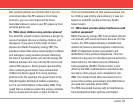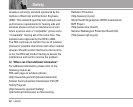
VX5300 85
FFDDAA CCoonnssuummeerr UUppddaattee
The U.S. Food and Drug Administration’s
Center for Devices and Radiological Health
Consumer Update on Mobile Phones:
1. Do wireless phones pose a health hazard?
The available scientific evidence does not show
that any health problems are associated with using
wireless phones. There is no proof, however, that
wireless phones are absolutely safe. Wireless
phones emit low levels of Radio Frequency energy
(RF) in the microwave range while being used.
They also emit very low levels of RF when in the
Main Menu Screen. Whereas high levels of RF can
produce health effects (by heating tissue),
exposure to low level RF that does not produce
heating effects causes no known adverse health
effects. Many studies of low level RF exposures
have not found any biological effects. Some
studies have suggested that some biological
effects may occur, but such findings have not been
confirmed by additional research. In some cases,
other researchers have had difficulty in
reproducing those studies, or in determining the
reasons for inconsistent results.
2. What is the FDA's role concerning the safety of
wireless phones?
Under the law, the FDA does not review the safety
of radiation-emitting consumer products such as
wireless phones before they can be sold, as it does
with new drugs or medical devices. However, the
agency has authority to take action if wireless
phones are shown to emit Radio Frequency energy
(RF) at a level that is hazardous to the user. In such
a case, the FDA could require the manufacturers of
wireless phones to notify users of the health
hazard and to repair, replace, or recall the phones
so that the hazard no longer exists.
Although the existing scientific data do not justify
FDA regulatory actions, the FDA has urged the
wireless phone industry to take a number of steps,
including the following:
●
Support needed research into possible
biological effects of RF of the type emitted by



